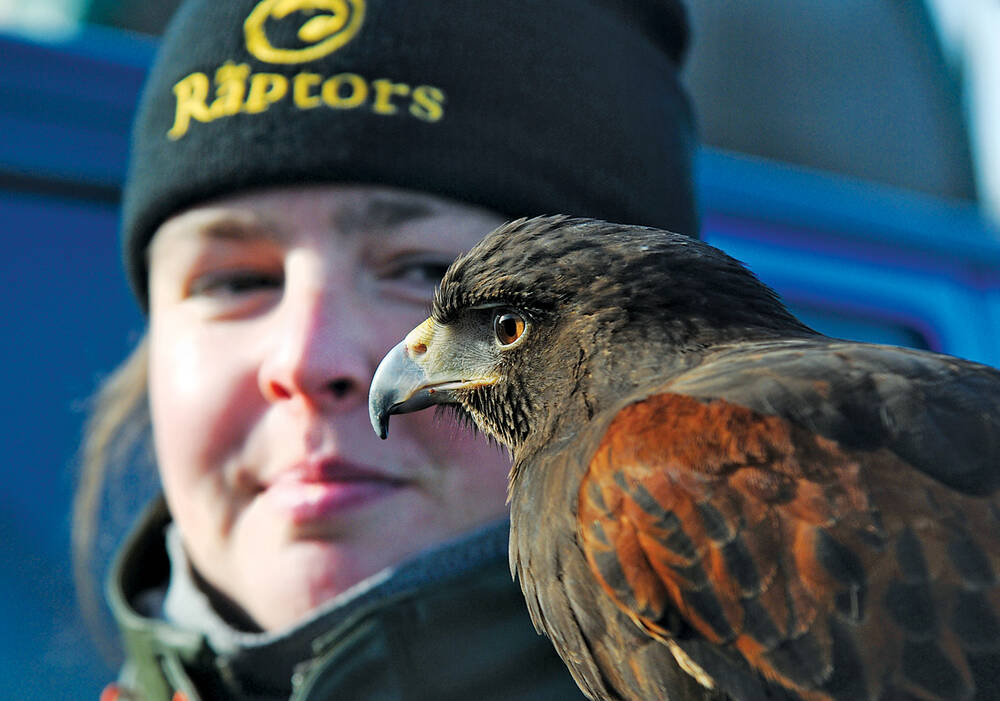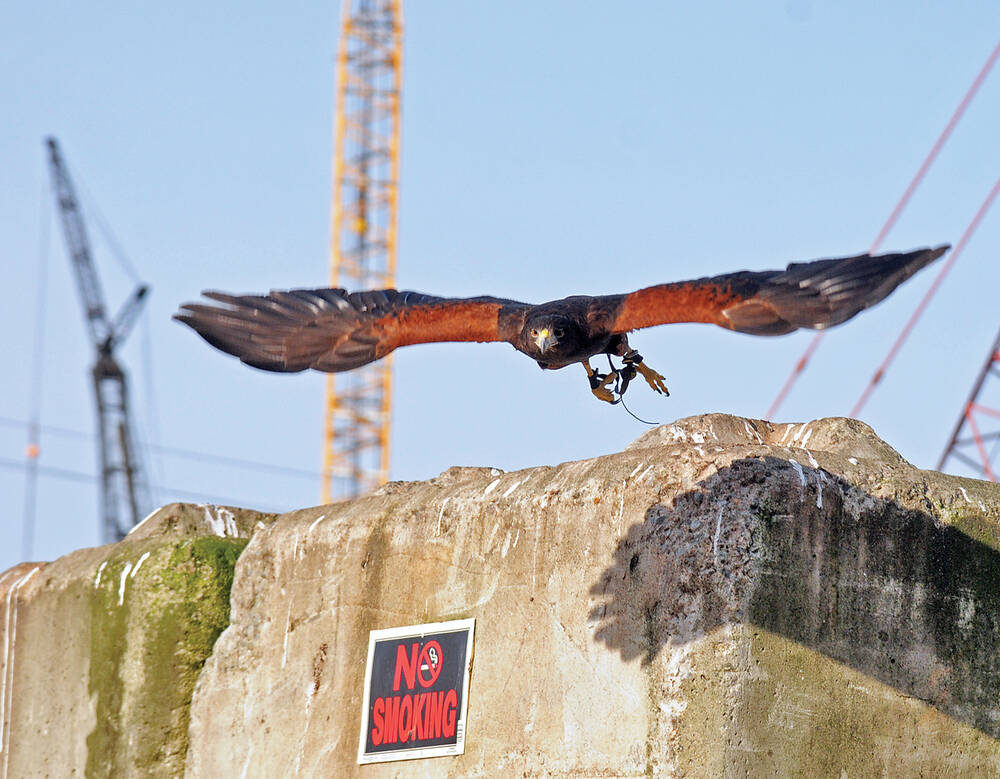In Spanish, his name means “little,” but don’t let that fool you. Poquito is the enforcer.
The eight-year-old Harris’s Hawk patrols the North Shore Recycling and Waste Centre, in an effort to keep seagulls and other nuisance birds out of the way.
The art of falconry dates back thousands of years, but it’s only in the last five years that Metro Vancouver has been employing raptors for pest management.
Without any kind of deterrent, the transfer station might like something along the lines of Alfred Hitchcock’s 1952 classic The Birds, with gulls getting in the way of people and machinery, coating the vehicles and visitors with guano, and creating public health and safety risks.
“I don’t think we’d be able to stand where we are,” said Paul Litt lead senior engineer with Metro Vancouver’s solid waste division. “It’s not just that no one likes seagulls.”
And while they might like unfettered access to our compost, it’s much healthier for the birds to be relying on natural food sources, Litt noted.

Birds of prey
Poquito spends much of the day happily perched on the arm of wildlife management officer Katelyn West, but when required, she can untether him from her leather gauntlet and signal him with a hand gesture to fly anywhere birds are congregating and send a message: No gulls allowed.
“I know we see them just kind of as like french fry eaters or birds hanging out on the beach with us, but they’re smart and they have really great vision,” West said of the gulls. “Just seeing him, they know that he’s a hawk, and he’s a predator, he’s apex to them…. And he is very good at his job.”
Poquito is a Harris’s hawk, a species that’s native to the American Southwest, although he was hatched in captivity here. He’s been fully human imprinted, which means he considers himself part of our wingless flock. It makes him highly social and trainable. Since he was just a chick, he’s been exposed to loud noises and potential stressors, so when a dog barks at him or a truck driver blows his horn, Poquito remains mostly unflappable.
Although his mere presence is often enough to keep seagulls at a safe distance, occasionally there are some that don’t get the message, and Poquito has a licence to kill or, more specifically, permits from the province and federal government to hunt.
“They do have a really deep-seated instinct to hunt,” West said. “And we do encourage their natural behaviours as much as we can, even though they live with us in human care. It’s really enriching to them as well.”

Pest management
When customers come to the transfer station to drop off a load of organics waste, they tend to do a bit of a double take when they see Poquito, West said.
The regional government spends about $60,000 per year on its contract with The Raptors, a Duncan-based business that provides wildlife management and educational experiences.
Litt said they tried other methods of pest control including sound cannons, which created noise problems for neighbours, and low-frequency sound devices, which didn’t actually keep the birds away. But nothing beats the avian equivalent of fighting fire with fire.
“It’s been an ongoing challenge and we’ve tried a number of things,” he said. “They’ve been proven to be the most effective so far.”
Other times you can find Poquito and West, or their avian and human colleagues, in better-smelling environments , Vancouver International Airport, and skyscraper rooftops.
“There’s a lot of reasons why we do this work, for safety, esthetics or environmental reasons,” West said.
Home to roost
When he’s clocked out for the day, Poquito goes home to his aviary in Richmond. He gets plenty of treats and socializes with Raptor’s other working birds.
West said they each have different personalities. While some can be standoffish, West describes Poquito as “like an innocent little boy” who is quite friendly. The bond between bird and handler is one they’ll likeley enjoy for a long time to come. As a bird in human captivity, Poquito will probably live to about 20, which is double the life expectancy of a raptor in the wild.
“He gets to live a long life – free health care, free rent, good company, and do his natural behaviour for his work,” she said. “It’s really magical. It’s a unique relationship.”
